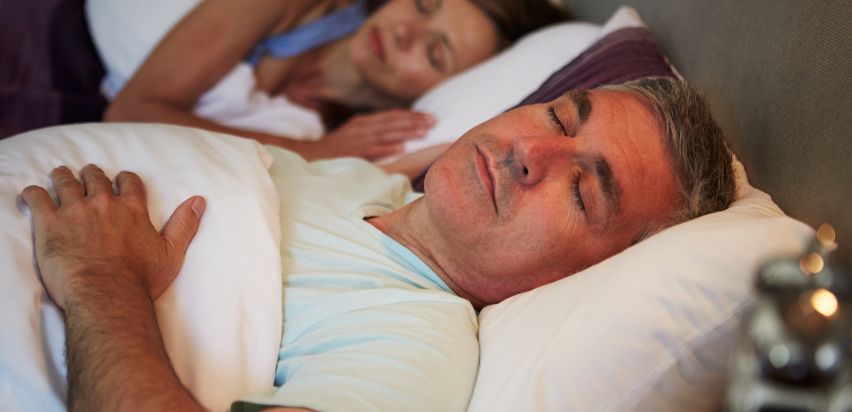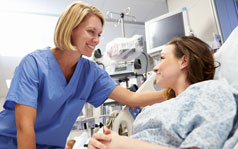Sleep Apnoea and Atrial Fibrillation
Research shows that over half of patients suffering with atrial fibrillation (AFib) also have sleep apnoea, and patients with sleep apnoea are four times more likely to develop AFib. Sleep apnoea affects about 100 million people worldwide yet up to 85% of cases go undiagnosed.

Sleep apnoea is when breathing stops or becomes critically shallow during sleep. The most common type of sleep apnoea, obstructive sleep apnoea, is caused by blocked airways in the throat and is highly associated with AFib. AFib is a serious heart arrhythmia characterised by a quivering or irregular heartbeat that can lead to stroke and other heart-related complications.
Studies show that patients with both AFib and sleep apnoea do not respond as well to medication to control heart rate as AFib patients without sleep apnoea. Long-term untreated sleep apnoea can cause impairments in thinking increase the risk for accidents, diabetes and a number of cardiovascular conditions including high blood pressure, stroke and AFib.
The cardiac team, with the help of Dr. Elaine Purcell, Sleep Medicine Consultant in Mater Private Hospital in Dublin, have put together a comprehensive list of signs and symptoms for people to look out for as well as the steps that can be taken to reduce risk.
“This is an important milestone in the development of a comprehensive and multidisciplinary atrial fibrillation centre of excellence at Mater Private Hospital, which aims to improve the quality of care for patients suffering from the most common heart rhythm disorder" - Prof. Gábor Széplaki, Head of Cardiac Electrophysiology, Consultant Cardiologist in Mater Private Hospital says.
Patients with AFib should be on the look-out for signs they have undiagnosed sleep apnoea which could be impairing their ability to control AFib. Sleep apnoea signs include:
- Waking up with a very sore or dry throat
- Loud snoring
- Occasionally waking up with a choking or gasping sensation
- Sleepiness or lack of energy during the day
- Sleepiness while driving
- Morning headaches
- Restless sleep
- Forgetfulness, mood changes, and a decreased interest in sex
Sleep Disorders Clinic
At Mater Private Sleep Disorders Clinic we treat a whole range of sleep disorders. We are the only clinic in Ireland providing a full range of services for both adults and children.
Learn more
Speaking about the strong link between AFib and sleep apnoea, our Arrhythmia Nurse at Mater Private Arrhythmia Clinic said, “Both AFib and sleep apnoea can be serious conditions in their own right but now we know that sleep apnoea can directly trigger arrhythmias during sleep. As sleep apnoea is often undiagnosed, it is important that anyone with AFib can recognise the symptoms of sleep apnoea so that both disorders can be treated in tandem. We know that preventing or reducing sleep apnoea makes AFib treatments much more effective, resulting in better outcomes for the patient.”
Mater Private arrhythmia service offers a rapid access to daily clinics for routine, testing and urgent consultation both in Dublin and in multiple locations outside Dublin.
There are steps that can be taken in order to reduce the incidents of sleep apnoea, thus improving the effectiveness of treatment for AFib such as cardioversion or catheter ablation such as:
- Weight loss
- Quit smoking
- Avoid alcohol and sedatives such as sleeping tablets
- Exercise regularly
- Avoid caffeine and heavy meals
- Maintain regular sleep hours
Urgent Cardiac Care
Mater Private offers Ireland’s only private 24/7 service for patients experiencing urgent cardiac symptoms. If you have any symptoms or are worried about your heart you can call the Urgent Cardiac Care team in Mater Private – 1800 247 999.
Learn more.jpg?sfvrsn=fd41945d_0)







.jpg?sfvrsn=bc97231b_1)




.jpg?sfvrsn=5a81ae69_1)
